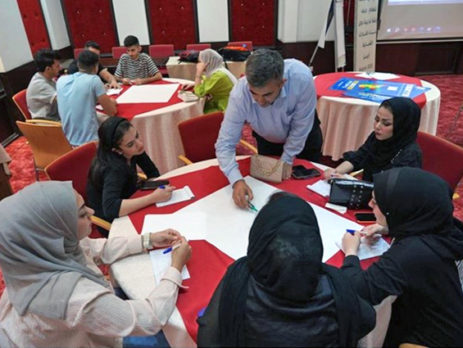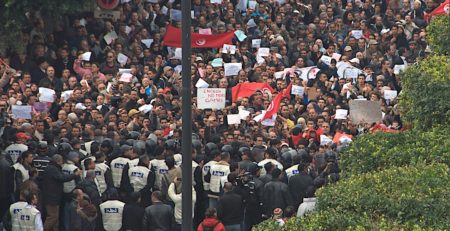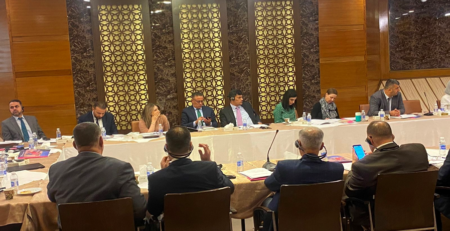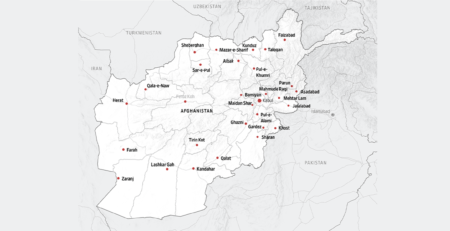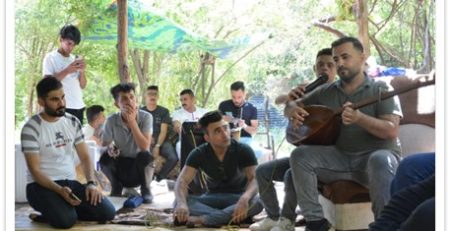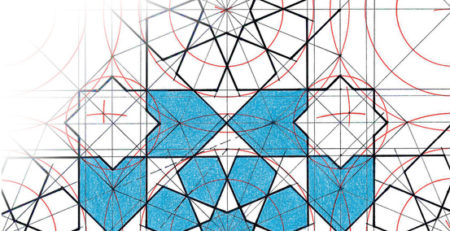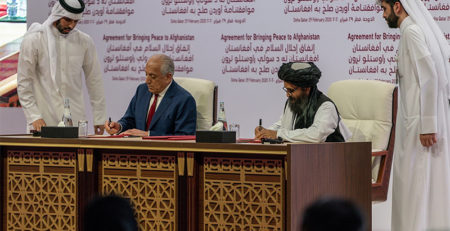Building Social Cohesion in Iraq
By Ali Al-Ahmad
CPI has been working in Iraq since 2017 on two key issues: a) the right to know the fate of missing persons, and b) social reintegration and cohesion, particularly for refugees returning to Iraq after seeking safety abroad during the ISIS era. A report on CPI’s activities in Iraq is now available.
The report begins with a background outlining the political context and causes of the sectarian conflict in Iraq, with attention to the areas of Samarra, Salaheddin Governorate, and Talafar, Nineveh Governorate, the principal geographical locations of CPI’s work. It then discusses the development of several projects carried out by CPI, emerging from its Middle East Platform, which was established in 2015. These different initiatives led up to the Iraq-focused projects carried out since 2017 and supported by the Swiss Federal Department of Foreign Affairs (FDFA), the Deutsche Gesellschaft für Internationale Zusammenarbeit (GIZ) and the German Federal Foreign Office (FFO).
The issue of missing persons in Iraq is a significant burden on the country and barrier to reconciliation and social cohesion across the sectarian divide. To address this issue, CPI has carried out two projects during the past 6 years. After extensive exploration and network building with political and religious actors in 2017, a pilot project was launched in Samarra (funded by the Swiss FDFA), to encourage social cohesion in this highly polarised city, seat of one of the most important Shia shrines, with a Sunni-majority population. It had been the focus of sectarian tensions over many years, and the bombing of the shrine in 2006 marked the beginning of the civil war. One tension which rapidly emerged was the issue of missing persons among the city’s population. The cooperation of the city’s authorities, tribal and religious leaders and the Popular Mobilisation Forces gave rise to information-sharing at the local level, and also led to an understanding of the magnitude of the issue, not just in Samarra, but nationally. This led to consideration of how the issue could be addressed countrywide. In 2020, therefore, a new project was launched, funded by the German FFO, incorporating Iraqi legal experts, and with the support of the religious authorities (including the Najaf marja’iyyah) and political actors, with the purpose of developing a federal law and mechanism to give the right to individuals to obtain information about their missing relatives. The relevant laws were drafted during 2020 and 2021 and presented at a conference organised by CPI in Najaf in December 2021, in the presence of officials, political and religious leaders and the public. The laws have since been adopted by the government and merged into one law which is now awaiting final parliamentary debate and approval before being implemented.
The other focus of CPI’s work during this period has been on the encouragement of the return of refugees and social cohesion efforts between those who left during different stages of the ISIS period and those who remained. This project has mainly taken place in the city of Talafar in Nineveh Governorate, which has a majority Turkmen population, many of whom found refuge in Ankara, Türkiye, when they were forced to flee either during the advance of ISIS or during the retreat. Talafar suffered severe damage during this period, as well as trauma inflicted on its population, and this period of conflict caused huge levels of distrust between different communities, and between those who stayed or left. CPI’s initial project in 2019-2020 (funded by GIZ) concerned Talafar’s education sector, and attempted to reconcile teachers and school principals, some of whom had taught under the ISIS regime and some of whom had left. There were different factors driving suspicion and mistrust between these two groups, and the aim of the project was to encourage understanding and social cohesion, for the sake of children, families and the population as a whole. This project achieved some positive results, despite activities being hampered by the COVID-19 pandemic. More importantly, this project demonstrated the challenges of social cohesion in Talafar, as well as the need to encourage refugee returns and ensure adequate reintegration and positive coexistence within the population as a whole. This led to the initiatives funded by the German FFO within the project phases which have taken place since 2020, and which have resulted in the return of significant numbers of refugees, their successful reintegration, and the development of a whole host of social cohesion initiatives. These have included cultural, sporting and social activities, workshops for youth, women and families, and interaction with government, tribal and other leaders. The activities have served as a model for encouraging social cohesion generally, and CPI aims to replicate the approach in other cities. A further offshoot of the approach will be to facilitate the reintegration into communities of returnees from transitional detention centres (such as the Jed’a 1 camp).
Through its work in Iraq, CPI has identified and addressed a number of challenges and, building on the lessons learned, intends to continue accompanying efforts towards post-conflict reconciliation and social cohesion. This work is essential to overcome the trauma suffered by Iraq’s multiplicity of communities, and the mistrust engendered by the past decades of conflict. The results of the projects carried out so far are encouraging, and a source of hope that such efforts can lead to a more stable and cohesive Iraq, equipped to face the challenges of the coming years.





